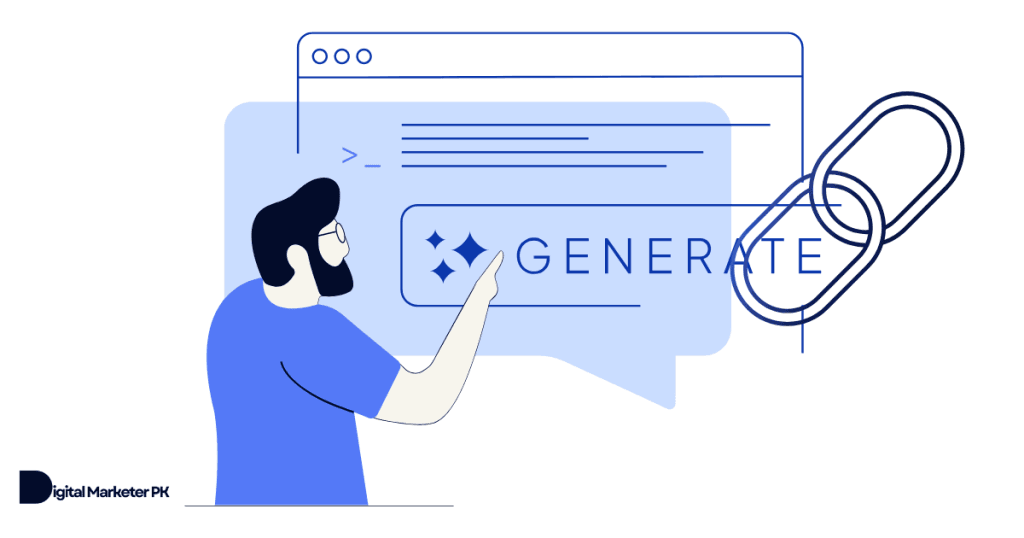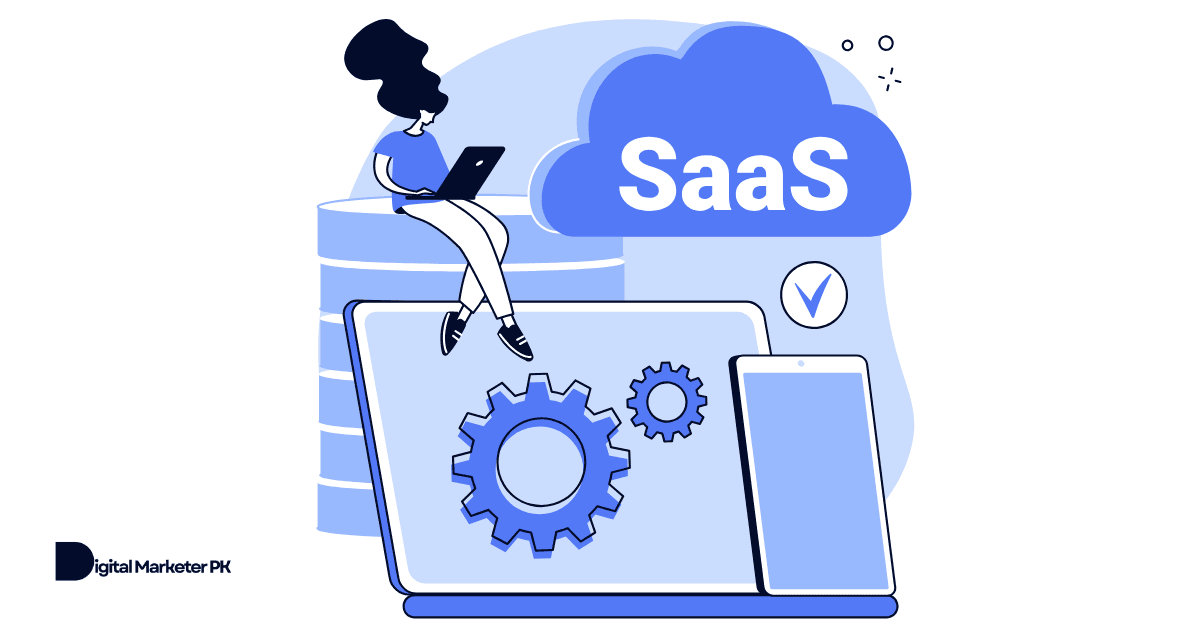AI content for SEO isn’t a good idea for your SaaS website.
It’s 2024.
Google tackled spun content back in 2011 with its Panda update. Today, we call that old spin content as AI-generated content.
Some things never change.
What is AI-Generated Content?
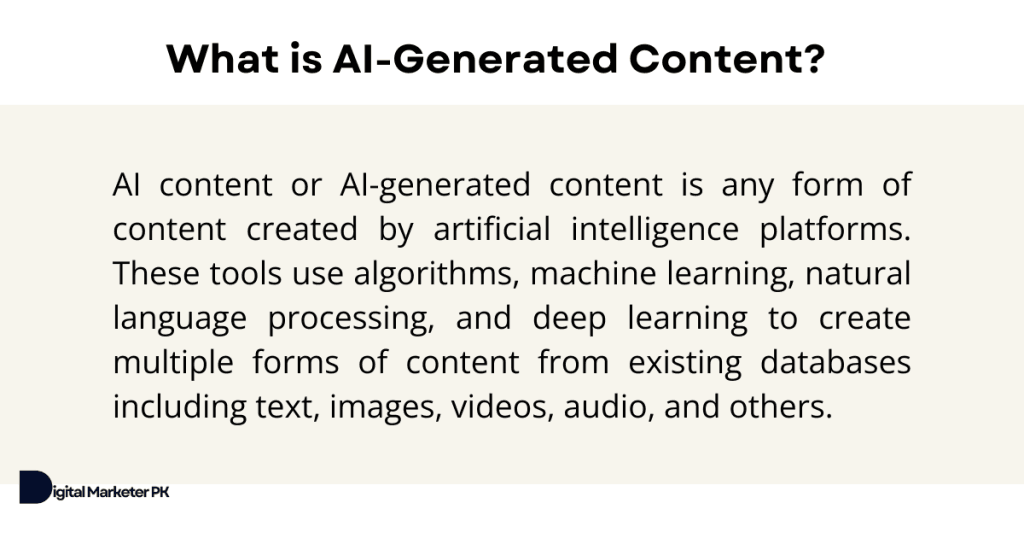
AI content or AI-generated content refers to content created by artificial intelligence algorithms. The content isn’t just limited to text rather it includes images, videos, audio, and other forms of content.
AI tools use machine learning, natural language processing, and deep learning to create content like a human. Some tools let you create long-form blog posts with a simple prompt or a brief.
These tools analyze large datasets of existing texts and that’s how they learn how to mimic human writing. Since they have large databases and have gone through millions of articles, books, and literature, they can generate new content on most topics based on what they know.
ChatGPT, for instance, has access to the internet and it can pull data from the internet in real-time to answer a query. This feature is available for paid plans (not the free ones).
AI tools that are specifically created for content generation such as Jasper and Copy.ai.
Jasper.ai has trained its AI tool by giving it access to 10% of all the content on the internet. It has a fixed database that was updated till September 2021 which means it doesn’t know what happened in the world after this period. Their tool isn’t connected to the internet in real-time rather it’s connected to its server to access the database.
Copy.ai also has a fixed database that its tool has accessed. It uses its own database (and not the internet) to create content.
When a tool offers a chat-related feature, it then fetches data from the internet in real-time. But when it has to write content, it has to be trained in a specific way with a set database so it can learn to write readable content.
What Does Google Say About AI-Generated Content for SEO?
Google treats AI content like any other form of content. It focuses on the content irrespective of how it’s produced.
Using AI content to manipulate search rankings is a violation of Google spam policies as it’s clearly mentioned here.

Google looks at the quality and helpfulness of the content. It doesn’t look at the way content is generated. This explanation by Google in February 2023 confused a lot of marketers and businesses. Consequently, people continued using AI-generated content at scale to drive traffic to their sites.
In September 2023, Google released a new version of its helpful content update. This focused on multiple aspects of helpful content and guidelines. It also includes information about the content creator, how the content was created, and why it was created.
Google listed clear instructions on using AI to generate content and major questions to ask yourself:
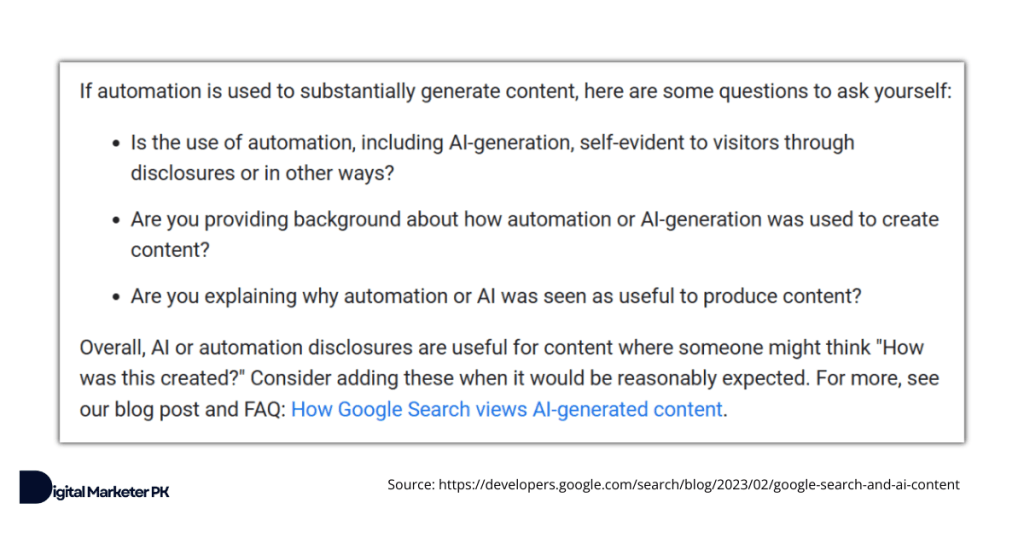
In 2024, Google got serious about spammy content and initiated a core algorithm update. The March 2024 core and spam updates were geared towards improving ranking quality by minimizing low-quality content in SERPs.
By April 2024, the search results had 45% less spammy and unoriginal content. The type of content and websites that were targeted included:
- Scaled content abuse where automated content was published at a massive scale
- Expired domain abuse where people used expired domains to publish AI content.
August 2024 core update was also focused on improving the quality of search results by valuing original, helpful content that’s written for people – not search engines. Up to 44% of poll participants reported a decline in traffic after the update was completely rolled out in September 2024.

Originality.ai conducted a study to analyze the impact of the March 2024 update and found that 1,446 websites received manual action. Almost 100% of the sites that were hit had AI-generated content and 50% of sites had 90% to 100% of all posts generated by AI:

Google hasn’t stopped webmasters from using AI-generated content, but it has tightened its spam policies to fight low quality content. If you have ever used an AI content generation tool, you’ll know the content is low-quality. It needs major revisions and edits by a human to make it worth reading.
Bing’s Take on AI Content for Its Search Engine
Bing treats AI-generated content differently. It hasn’t tweaked its algorithm, rather it’s more of accommodating AI-generated content.
Bing announced in 2023 that it’s using AI content in Knowledge Cards and Stories to improve UX.
It switched to generative search in 2023 and improved it in July 2024. Search users see an AI-generated experience that pulls data from across the web and presents it in an easy-to-read and understandable manner.
Here’s an example of how Bing uses AI content in its search:
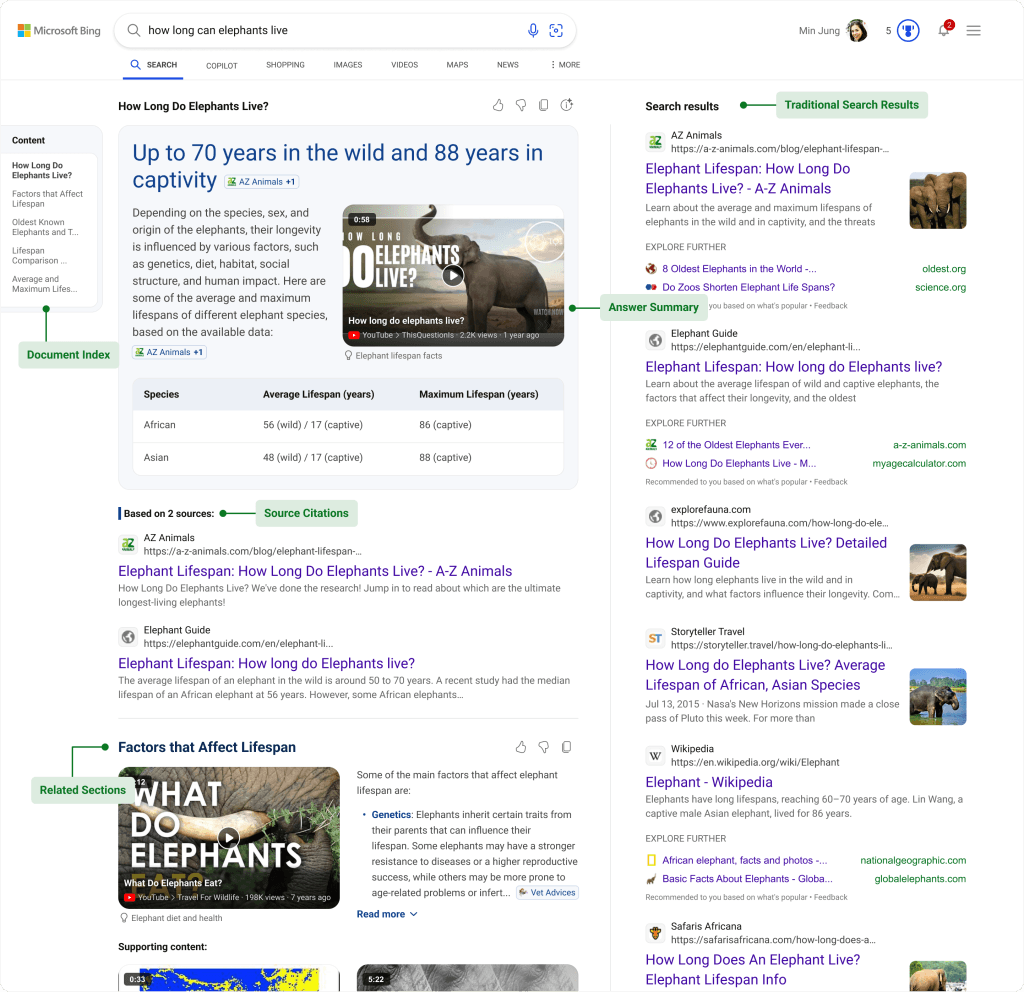
Bing ranks AI-generated content in search results without considering them spam.
Sites that are de-indexed and hit severely by Google due to AI content rank quite well in Bing and its partner search engines.
Bing is AI content friendly and doesn’t penalize sites for using AI content at scale even if it’s poor quality.
Pros and Cons of AI-Generated Content for SEO
When deciding to use AI-generated content for SEO, you need to look at both sides of the coin:
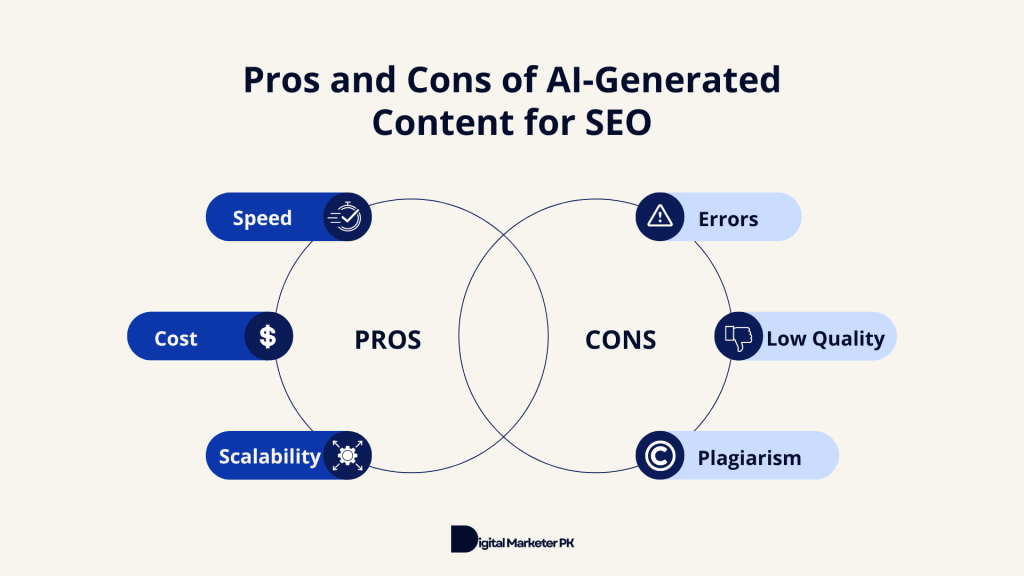
Pros of AI Content for SEO
Speed: The best thing about AI content is the speed with which you can create and publish new content on your SaaS blog. You can create a complete blog post with a simple prompt. This lets you increase publishing frequency leading to an increase in the number of new indexed pages.
Cost: Creating high quality content for your SaaS blog is quite expensive. Even research for a nicely written article requires a few good hours. AI significantly reduces the cost of producing new content. You can create heaps of content for less than $100 per month.
Scalability: You can create content at any scale with AI. This is what makes it a must-have tool for marketers and SaaS companies. Imagine producing a year’s worth of content in a month. You can complete anyone in your niche by publishing lots of content. More content means more keywords, search impressions, and organic traffic.
Cons of AI-Generated Content for SEO
Errors: AI-generated content has lots of factual errors that are hard to identify during proofreading and editing. This means even if you heavily edit AI content, it still might have factual errors.
Low quality content: AI tools generate low-quality content that lacks creativity and personalization. This is what makes this type of content spammy and Google might choose not to index it.
Plagiarism: Content generated by AI tools lacks originality. It is reworded content that might not be detected by a plagiarism tool, but the idea and words aren’t original. A report by Copyleaks stated that 45.7% of all GPT 3.5 text is plagiarized and 46.5% is paraphrased text. NYT has sued OpenAI and Microsoft for copyright infringements claiming that AI has copied and reused NYTs’ content.
Should You Use AI-Generated Content on Your SaaS Blog?
No.
You might rank in Google and definitely in Bing with AI-generated content, but it isn’t the best thing to do from a user and UX perspective.
According to a survey, 24% of consumers strongly or somewhat oppose the view that businesses should use AI for content creation. Up to 75% of people said that businesses should disclose if their content was created by AI.

Both people and Google don’t like AI-generated content.
What you need to understand is that AI content always performs poorly in Google SERPs. This is because Google strictly likes and ranks content written for humans. Its algorithm considers AI content spammy because it is perceived to be created to manipulate search rankings.
In most cases, it is.
If you want to create helpful content for your target audience, you’ll take the time to research and write a masterpiece. Using AI is an indication that you used a shortcut to create content quickly.
And this is considered (blatant) manipulation.
Google wants you to spend time and resources to create content that people will love reading and interacting with.
So, using AI to create content is a big NO if you want to rank in Google.
How to Use AI in Your SaaS Content Marketing Strategy
While you shouldn’t use AI to create content for your SaaS blog, you can use AI to supercharge your inbound marketing strategy.
Here are a few ways a SaaS company can leverage AI to improve its content marketing strategy:
- Use AI tools to generate blog post outlines
- Leverage free or paid AI tools to create blog titles
- AI tools offer the best help for topic and keyword research
- Use ChatGPT for HTML tag generation and basic coding for JavaScript and CSS to improve technical SEO.
Artificial intelligence can be best used for assistance during the content creation and publication process for your blog. There’s a lot you can do with AI tools that are available for marketers and SaaS businesses. Check out platforms like Product Hunt and AppSumo to find new AI tools and see how you can fit them into your martech.
AI Content Isn’t for Your Blog
Yes, AI-generated content isn’t for your blog. It’s not even good enough for social media posts.
It will ruin your site’s search appearance, indexing, and ranking.
AI content isn’t meant for SEO. That’s what Google thinks and it has embedded the same in its core algorithm. There’s nothing you can do about it.
If you want to rank your SaaS blog in Google SERPs, stay away from AI-generated content. Create helpful, well-researched, and people-first content.
Spend resources to create content that people will like to read and engage with. Google will love you for it.

